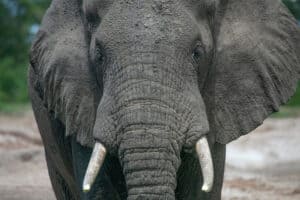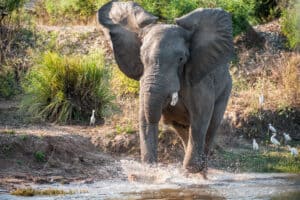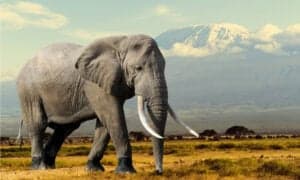“If anyone wants to know what elephants are like,” Pierre Corneille once explained, “they are like people only more so.”
It was a prescient observation for a man who lived in the 1600s, as over the centuries, researchers have learned that elephants, in many ways, are just like us. They mourn their dead, cry tears of joy, and form close familial bonds.
They also have lifespans similar to our own, and today, we’re looking at some of the oldest known elephants to ever live.
A Quick Crash Course in Elephants
Elephants are the largest land mammals currently roaming Earth — specifically in Africa and Asia. As you might have already guessed, the gentle-but-giant herbivores need lots of fuel, and the average adult elephant puts down 330 pounds of vegetation a day. But when you consider that elephants weigh between 5,000 and 14,000 pounds, 330 pounds of food makes sense!
Despite their commanding size, the elephants are not all right. Due to poaching, climate change, and habitat destruction, all three extant species are on the International Union for the Conservation of Nature’s Red List. African bush elephants and Asian elephants are Endangered, and African forest elephants are Critically Endangered.
The easiest way to tell African and Asian elephants apart is their ears: the former’s are much larger and shaped like the African continent; the latter are smaller and shaped like the Indian subcontinent!
They are highly intelligent animals with complex emotions, feelings, compassion, and self-awareness (elephants are one of the very few species to recognize themselves in a mirror!)
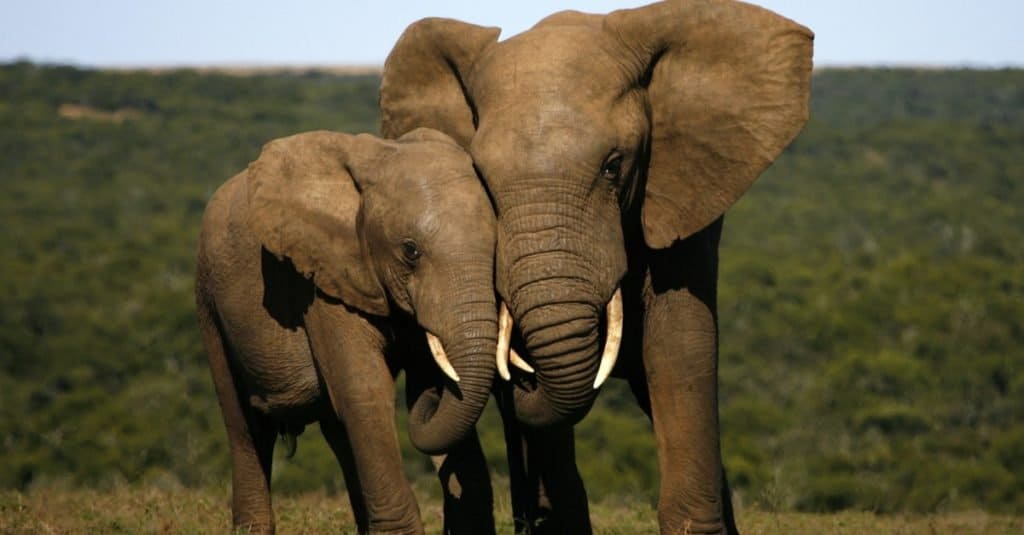
Two wild African Elephants interact with each other. Elephants are highly social animals that need companionship.
©JONATHAN PLEDGER/Shutterstock.com
Elephant Evolution and Origins
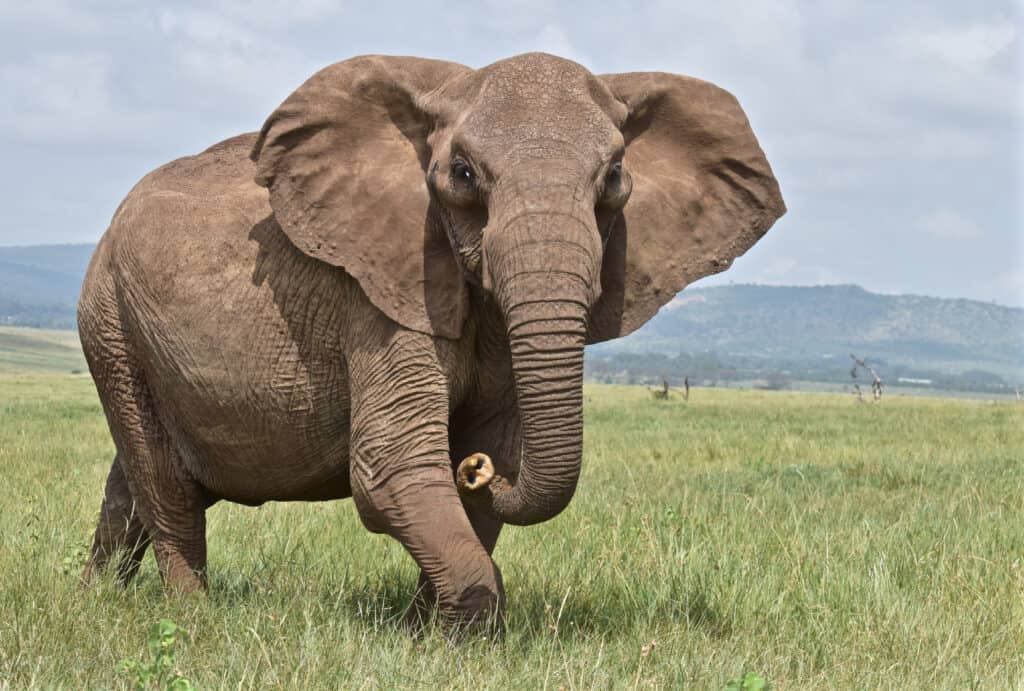
Elephants are believed to have evolved from small, rodent-like creatures that lived more than 60 million years ago.
©AndyElliott/Shutterstock.com
Elephants are believed to have evolved from small, rodent-like creatures that lived more than 60 million years ago. These early ancestors of the modern elephant were known as proboscideans, and they were small, agile creatures that roamed the forests and grasslands of ancient Asia.
Over time, proboscideans evolved to become larger and more specialized. They developed long, curved tusks for digging up roots and breaking branches, as well as elongated trunks for grasping and manipulating objects. Their teeth also evolved to become flatter and better adapted for grinding tough vegetation.
By the time of the last Ice Age, around 2.6 million years ago, elephants had evolved into the large, majestic creatures we know today. These ancient elephants were widespread across much of Europe, Asia, and Africa, and they were an important part of many ecosystems.
However, over the last few thousand years, elephant populations have declined dramatically.
What Is the Average Lifespan of an Elephant?
The average lifespan for Asian elephants is 48 years. African elephants typically make it to 60 or 70.
Sadly, zoo-dwelling elephants have the shortest lifespans. A six-year study concluded that pachyderms living in European zoos die much sooner than those living in protected wildlife reserves throughout Africa and Asia. Researchers believe that captivity significantly erodes elephants’ mental health, so much so that the stress can lead to early death.
One extensive study found that the average life span for zoo-born female elephants was 17 years, while females born in Amboseli National Park, Kenya lived an average of 56 years. And for Asian elephants, half of the ones born in zoos had passed by the age of 19, versus age 42 for those born in the wild. In general, elephants thrive in large herds, but at zoos, an individual will only have 2 or 3 other elephants to interact with.
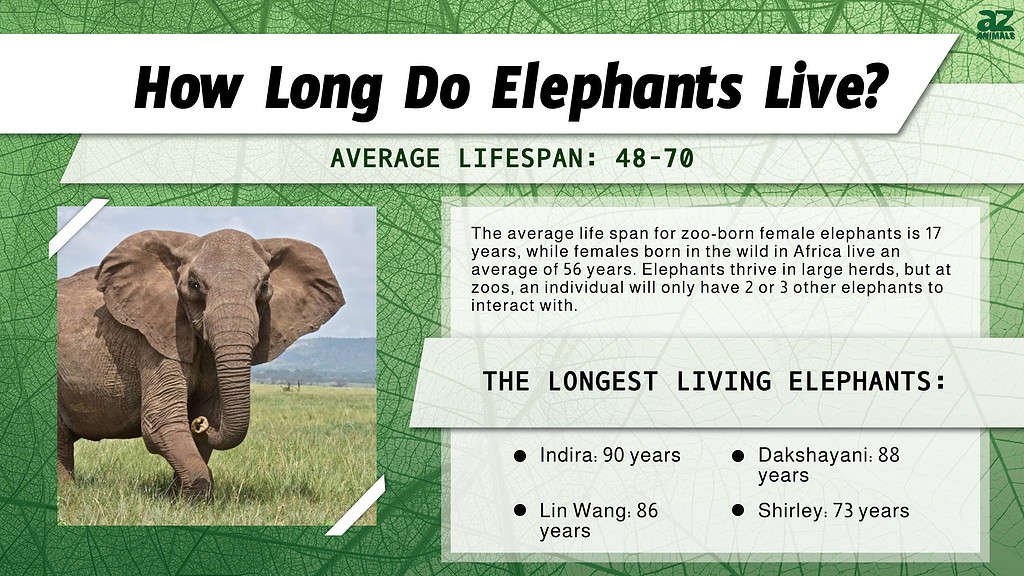
Poaching Is a Huge Threat
Though elephants live relatively long lives compared to other animals in the wild, poaching is an increasing problem for the pachyderm population. According to some reports, over 30,000 elephants are illegally killed each year for their ivory.
The situation is devastating and complicated. Corporate encroachment and urban expansion have decimated the traditional livelihoods of many communities, and regional wages meant to replace the old ways are stagnant and insufficient.
But ivory black market buyers are willing to pay enough to support an impoverished family for an entire year, so poaching continues. Solving the problem will require a multifaceted plan that accounts for sociological, economic, and psychological considerations on both micro and macro scales.
Evidence suggests that Mother Nature is also working on the problem, and some scientists speculate that tuskless elephants may be climbing the evolutionary ladder. However, related research is still in its early stages, and conclusions have yet to be drawn.
Oldest Known Elephants
Nobody is sure which animal currently holds the record for the oldest elephant living because the long-reigning record-holder, Dakshayani, passed away in 2019 at the ripe old age of 88. Soon after his death, the pandemic descended, and a new crown holder has yet to be named.
Based on our research, Raju, an Asian elephant rescued in 2014 by Wildlife SOS, may be the front-runner. His vet believes he’s in his late 50s. According to reports, Raju was a slave elephant, and when handlers from Wildlife SOS cut off his shackles, Raju shed tears of joy.
But the probability that Raju is the oldest elephant on the planet is pretty low. A 60-plus-year-old pachyderm, who’s managed to escape poaching, is likely living somewhere in the wild.
Former oldest elephant record-holders include:
- Lin Wang – A World War II veteran and resident of the Taipei Zoo, Lin Wang was born in 1917 and passed away in 2003 at the age of 86. For years, he held the title of the world’s oldest living elephant.
- Indira – Indira lived most of her life at Karnataka’s Sakrebailu, an elephant rehabilitation center in India. Docile and accommodating, Indira lived to about 90 years old — or, at least, that was her vet’s best guess. Nobody was sure of her actual age at death because she wasn’t born in captivity. Indira passed away in 2017.
- Shirley – Shirley was born into a toxic circus environment where handlers abused her. Thankfully, she was eventually sold to the Louisiana Purchase Gardens and Zoo in Monroe, Louisiana, and was ultimately placed at The Elephant Sanctuary in Tennessee. The world first welcomed Shirley in 1948. Sadly, she passed on in 2021 at the age of 73, which is a long time for an Asian elephant!
- Hanako – When Hanako went to elephant heaven in 2016, she was the oldest Asian elephant in Japan. Hanako lived at the Inokashira Park Zoo, but her treeless enclosure at the facility courted much controversy. Plus, they forced Hanako to live alone, the equivalent of being thrown in solitary confinement for no reason.
- Tyranza – A longtime resident of The Memphis Zoo, Tyranza — Ty for short — was once the oldest African elephant in North America. Ty was born in 1964 and orphaned early. From there, she was committed to a circus and rescued in 1977 by the Memphis Zoo. Sadly, she passed away in 2020.
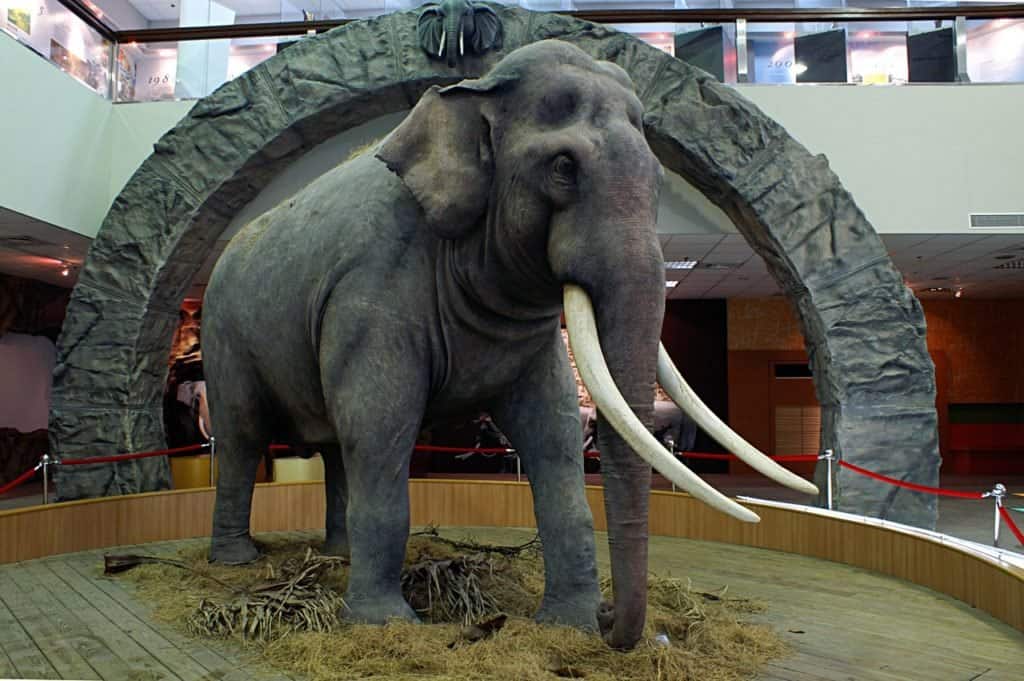
©peellden / CC BY-SA 3.0 – License
Elephants are incredible animals. To ensure their survival, conservationists, scientists, and animal activists must work together to develop effective programs that address the needs of both elephants and humans.
The photo featured at the top of this post is © David Steele/Shutterstock.com
Thank you for reading! Have some feedback for us? Contact the AZ Animals editorial team.



